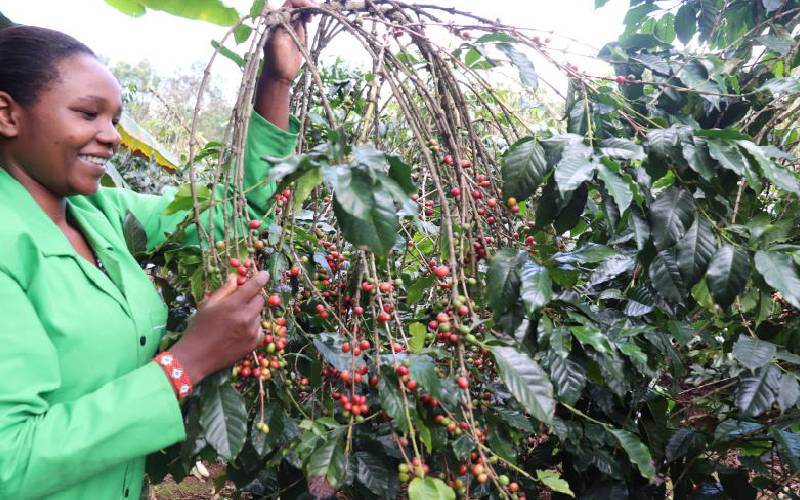×
The Standard e-Paper
Home To Bold Columnists

Evalyne Nyawira picks coffee at her farm in Kiamutuira, Kirinyaga County. Smallholder farmers will access cheap capital from the Cherry Fund to increase production. [Joseph Muchiri, Standard]
Smallholder coffee farmers will start accessing loans from the Sh3 billion revolving kitty that is part of the measures by the State to revive the industry.